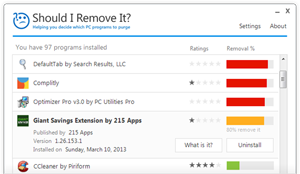Import table
advapi32.dll
SetSecurityDescriptorDacl, InitializeSecurityDescriptor, RegCloseKey, RegSetKeySecurity, RegOpenKeyExA, RegQueryValueExA, RegOpenKeyA
kernel32.dll
SetStdHandle, GetStringTypeW, GetStringTypeA, LCMapStringW, LCMapStringA, SetEnvironmentVariableA, CompareStringW, SetFilePointer, GetCPInfo, IsBadCodePtr, IsBadWritePtr, VirtualAlloc, WriteFile, VirtualFree, HeapCreate, FlushFileBuffers, MultiByteToWideChar, CompareStringA, GetEnvironmentStrings, FreeEnvironmentStringsW, FreeEnvironmentStringsA, GetModuleFileNameA, GetStartupInfoA, GetFileType, GetStdHandle, SetHandleCount, SetUnhandledExceptionFilter, TlsGetValue, SetLastError, TlsFree, TlsAlloc, TlsSetValue, HeapSize, GetCurrentProcess, TerminateProcess, ExitProcess, HeapReAlloc, HeapAlloc, HeapFree, IsBadReadPtr, GetCommandLineA, RaiseException, RtlUnwind, GetEnvironmentStringsW, GetEnvironmentVariableA, CreateMutexA, LocalAlloc, lstrcmpA, lstrlenA, LocalFree, GetVersion, GetModuleHandleA, GetOEMCP, GetACP, GetVersionExA, DeleteCriticalSection, LeaveCriticalSection, EnterCriticalSection, InitializeCriticalSection, ResetEvent, SetEvent, UnmapViewOfFile, OpenFileMappingA, MapViewOfFile, WideCharToMultiByte, InterlockedDecrement, GetTickCount, InterlockedIncrement, CreateSemaphoreA, OpenProcess, InterlockedExchange, CreateProcessA, GetExitCodeProcess, OpenEventA, OpenMutexA, CreateFileA, CloseHandle, CallNamedPipeA, WaitForSingleObject, ReleaseMutex, Sleep, FreeLibrary, SetErrorMode, LoadLibraryA, GetLastError, GetProcAddress, GetCurrentThreadId, GetCurrentProcessId, HeapDestroy
pscore2.dll
_PSUnicodeToAnsi@12, _PSStrCpyW@8, _PSLToStrW@12, _PSRegistryGetValue@24, _PSAnsiToUnicode@12, _PSStrLenW@4, _PSMutexAcquire@4, _PSMutexRelease@4, _PSLibGetSymbol@12, _PSLibOpen@8, _PSLibClose@4, _PSMutexDestroy@4, _PSMutexCreate@12, _PSComCreateObject@16, _PSGetHostName@8, _PSComCreateObjectByProgID@16, _PSModuleComCreateObject@20, _PSModuleSetInitialized@8, _PSStrLenA@4
user32.dll
MessageBoxA
Export table
DllCanUnloadNow
DllGetClassObject
DllRegisterServer
DllUnregisterServer
PSDllRegisterServer

